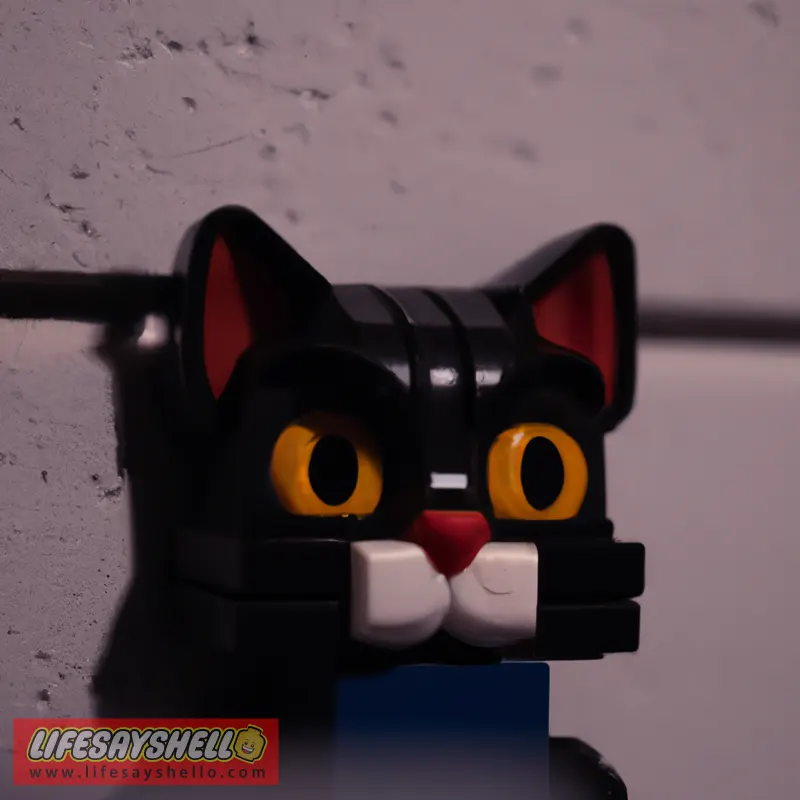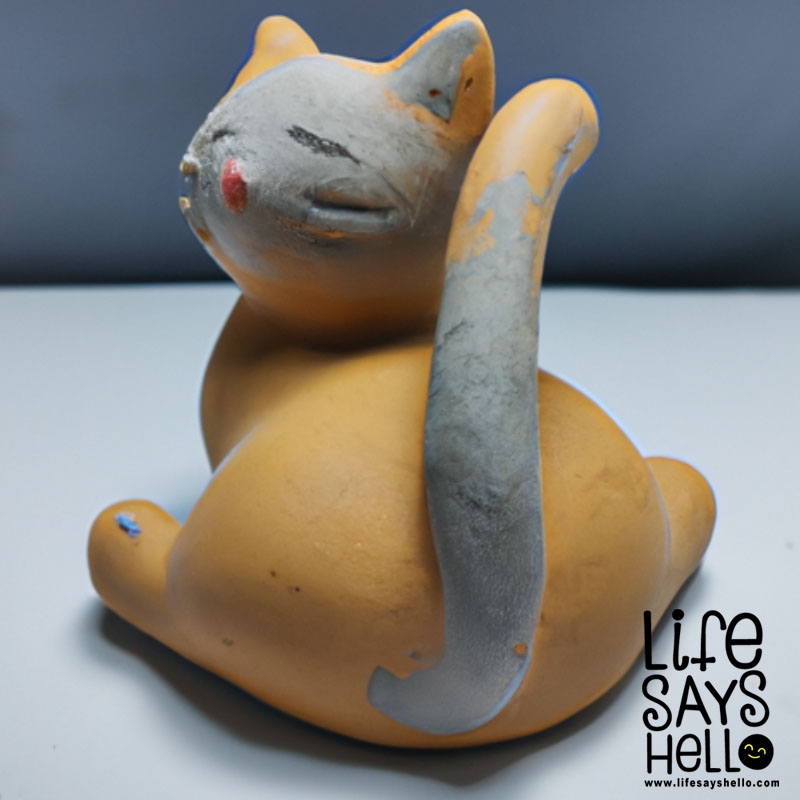Why Is My Cat Spraying Everywhere? How to Finally Stop This Frustrating Behavior

Has your cat started randomly spraying urine all over your home? You’re not alone. Many cat owners deal with the unpleasant surprise of finding those stinky wet spots on walls, furniture, and more. But don’t despair - with some detective work, you can get to the bottom of why your cat is spraying and how to stop it for good.
Spraying, or marking territory with urine, is actually a natural feline behavior. In the wild, cats will spray to mark their turf and let other cats know who’s boss. But when done inside your home, it can quickly become an annoying and stressful issue.
The key to curbing cat spraying is figuring out the motivation behind it. There are several common reasons why cats start liberally spraying urine inside. Once you identify the trigger, you can take steps to address the underlying cause and retrain your cat. With some patience and commitment to solutions, you can put an end to the unwanted spraying.
Common Triggers for Indoor Cat Spraying
So why has your cat suddenly started liberally spraying urine all around your home? Here are some of the most common reasons behind cat spraying:
Stress and Anxiety
Cats are creatures of habit who don’t like disruption. Any changes to their routine or environment can cause stress and anxiety. Things like introducing a new pet, moving homes, construction noise, or having guests stay over can all upset your cat. Even small changes to their feeding schedule or litter box location can be enough to induce spraying. Essentially, spraying is your cat’s way of coping with stress.
Medical Issues Like UTIs
Various medical issues can cause your cat to spray urine. Conditions like urinary tract infections, bladder inflammation, kidney disease, and diabetes often increase urination and accidents. Your cat may not be able to make it to the litter box in time if they have a UTI or bladder infection. Any type of discomfort or urgency with urination can cause spraying.
Sexual Maturity and Heat Cycles
Spraying is closely linked to feline sexual maturity and reproductive heat cycles. Cats who are not spayed or neutered are much more likely to spray urine, especially when they go into heat. The hormones related to going into heat induce behaviors like spraying and yowling as they seek out mates. So if your cat is not fixed, spraying is probably related to their intact status.
Perceived Threats from Outdoor Cats
Does your indoor cat sit at the window glaring outside for hours? They may be stressed by the sight of other cats in the neighborhood. Outdoor cats can pose a perceived threat, triggering an indoor cat to start spraying inside to mark their home turf. They’re trying to send a “back off” message even through closed windows.
Dislike of Litter Box
Sometimes cats spray because they have an aversion to their litter box. If the box is not cleaned regularly, is in a noisy location, doesn’t have enough privacy, or has a litter type they don’t like, spraying can result. They opt to go elsewhere in protest. Any stress or negative association with the litter box can induce spraying around your home instead.
Tips to Finally Stop Cat Spraying for Good
Once you identify the motivation behind the spraying, you can take targeted action to curb it. Here are the top ways to stop cat spraying inside your home:
Take Your Cat to the Vet
The first step is always to take your cat to the vet for a thorough checkup. Have your vet run diagnostic tests like a urinalysis and bloodwork panel. This will check for medical issues like UTIs, kidney problems, diabetes, and more which could be causing the spraying.
Your vet can also prescribe anxiety medication if stress and environmental factors seem to be the trigger. Drugs like Prozac and anti-anxiety meds can help reduce spraying in some cats. But medication should always be combined with behavior modification training too.
Reduce Stressors at Home
If your cat is spraying from stress or anxiety, take steps to minimize disruptions to their routine:
Keep feeding times, play sessions, and litter box cleaning on a regular schedule.
Make gradual introductions for new pets over weeks to get them used to each other.
Use Feliway pheromone diffusers and calming treats to ease anxiety.
Limit loud noises, construction, and guests to reduce stress.
Place cat trees, beds, and scratchers in quiet corners for retreats.
The more consistency and predictability you can provide, the less anxious your cat will feel.
Limit Views Outside
To stop spraying triggered by outdoor cats, restrict your cat’s ability to see them:
Close curtains and blinds so they can’t see out windows or glass doors.
Place bird feeders and cat attractants away from windows.
Use motion-activated sprinklers or Ssscat compressed air sprayers to deter neighbor cats from coming near the house.
Apply window clings or decorative window film to obscure outside views.
The less they see of outdoor cats, the less they will feel the need to mark their territory.
Thoroughly Clean Soiled Areas
Don’t just spot clean or cover up sprayed areas - thoroughly clean them. Cat urine contains pheromones that induce more spraying.
Use an enzyme-based cleaner like Nature’s Miracle to completely break down the urine compounds. Avoid ammonia and vinegar, which smell similar to urine.
You may need to reclean areas several times to completely remove all traces of the pheromone smells. This will discourage repeat spraying incidents.
Spay or Neuter Your Cat
If your cat is not already fixed, schedule an appointment to get them spayed or neutered. Spraying is closely linked to the hormonal changes and sexual maturity that comes with intact status.
Spaying or neutering reduces the hormone motivations to spray and mark territory. It also eliminates going into heat cycles that induce spraying. This simple medical procedure can drastically cut down on spraying in the vast majority of cats.
Make Previously Marked Areas Positive
Cats are likely to spray in areas that already smell like urine or where they’ve sprayed before. So make those problem spots positive again:
Feed, play with, and give treats at previously marked areas.
Place cat trees, beds, and scratchers in frequently sprayed spots.
Use catnip spray to make previous spray zones appealing again.
With enough positive associations, your cat will be less compelled to keep spraying there.
Try Different Litters or Litter Box Types
If your cat seems to be spraying from litter box aversion, experiment to find products they like:
Try different litters like pine, wheat, or corn. Avoid scented litters.
Get larger, deeper litter boxes for more room.
Add more litter boxes in quiet, low traffic areas.
Try uncovered boxes, different shapes, or self-cleaning types.
Place mats outside box to soak up spilled litter.
Finding a litter solution they’re happy with can stop spraying protests.
When to Seek Additional Help for Cat Spraying
If you’ve addressed the common triggers but your cat continues to spray, don’t despair. Seek help from your vet or an animal behavior specialist for more advice.
Prescription anti-anxiety medications or pheromone collars can help in stubborn cases.
Cat behaviorists can observe your cat and home environment to pinpoint causes.
Temporary confinement when you’re away can be effective for some cats.
In rare cases, rehoming may be considered if spraying is linked to specific stressors in your home.
While spraying can be incredibly frustrating and difficult to control, there are always more options to try. The secret is diligently investigating the motivation behind it in your unique cat. Customizing solutions to your cat’s particular triggers is key to successfully ending the spraying over the long term.
The Takeaway on Cat Spraying
Marking territory by spraying urine may be normal cat behavior, but it’s no fun when done inside your home. By identifying the underlying cause - whether medical problems, stress, litter box dislike, or perceived outdoor threats - you can develop targeted solutions. With enough patience, consistency, and commitment to behavior modification training, you can put a stop to frustrating cat spraying for good.




Comments